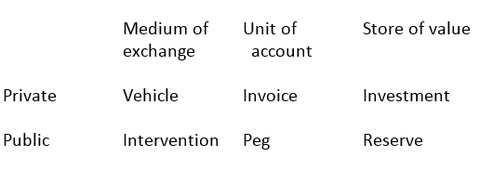As some readers may have guessed, a number of my recent blog posts have in effect been notes on the way toward my paper and presentation here. I have gotten somewhat obsessed with the question of whether a Greek-style crisis is possible for a country like the United States, and with the amazing way that the conviction that it is has taken root among policy elites without, as far as I can tell, any attempt to explain the actual mechanism.
And by the way: yes, a decade ago I expressed similar worries. But when I learn new things, I change my views. What do you do?
So let me add another piece, partly as a way to make sure that I don’t forget about it in my own writing, and let’s talk about contemporary Japan.
First of all, compare and contrast. Here, again, is Erskine Bowles warning, in March 2011, that terrible things will happen if China stops buying our bonds:
[T]his is a problem we’re going to have to face up to. It may be two years, you know, maybe a little less, maybe a little more. But if our bankers over there in Asia begin to believe that we’re not going to be solid on our debt, that we’re not going to be able to meet our obligations, just stop and think for a minute what happens if they just stop buying our debt.
But just a few months earlier Japan was also worried about Chinese purchases of their debt — worried not that China would stop buying, but about the effects of China starting to buy:
Japan’s government said it will seek discussions with China over the nation’s record purchases of Japanese bonds as an appreciating yen threatens to undermine an economic recovery.
Japan is closely watching the transactions and will seek to maintain close contact with Chinese authorities on the issue, Vice Finance Minister Naoki Minezaki told lawmakers in Tokyo. Finance Minister Yoshihiko Noda suggested at the same hearing that it’s inappropriate for China to buy Japan’s bonds without a reciprocal ability for Japanese to invest in China’s market.
Funny: Japan didn’t seem to think that China was doing it a favor by buying its debt, even though Japan has a much higher debt ratio than we do. And for these purposes, Japan looks a lot like us: it’s an advanced nation that borrows in its own currency and finds monetary policy constrained by the zero lower bound.
It’s instructive here to look at Japan’s real effective exchange rate since the beginning of the economic crisis:
 Bank for International Settlements
Bank for International Settlements You can see why Japan was complaining about the high value of the yen. What was causing that? Not so much Chinese purchases, I’d argue, as ingrained deflation. Once the whole advanced world found itself with zero nominal interest rates, Japan — where people had come to expect deflation at around 1 percent a year, compared with expectations of around 2 percent inflation in the US and elsewhere — was offering higher real interest rates than its counterparts. The result was a strong yen, which was exactly what a liquidity-trap economy didn’t need.
As you can see, however, more recently the yen has declined steeply. What’s that about? The answer is, Abenomics, which has successfully, at least for now, convinced investors that the Bank of Japan has changed its spots and will keep the pedal to the metal for a long time even after moderate inflation sets in.
And think about it: what Abenomics is trying to do, although it’s not stated that way, is reduce investor confidence in Japanese bonds — it’s trying to convince buyers of JGBs that the value of those bonds will in fact be eroded by inflation, not swelled by deflation. So far, it has succeeded.
So has this loss of confidence led to rising Japanese interest rates and a recession? Well, no:
So Japan has, in effect, engineered the very kind of loss in confidence that politicians in the US and the UK warn, in dire terms, will be our doom unless we cut social programs. And it has been an unambiguous good thing for the Japanese economy.
Now, I’m sure many people will argue that a Chinese loss of confidence in America would play out very differently. But why, exactly? Show me the model — and don’t tell me that it must be true because those great experts in open-economy macroeconomics Erskine Bowles or Admiral Mullen say so.














